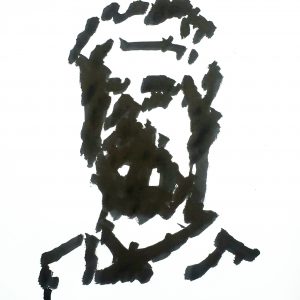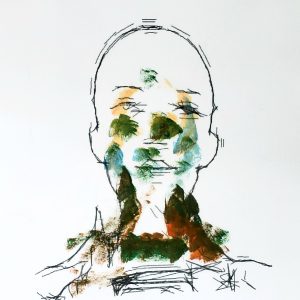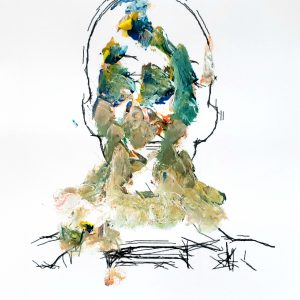Sophia

Sophia is a four year old lifelike humanoid robot activated by Hanson Robotics. She combines innovations in science, engineering and artistry. Working with galleries, labs, universities and companies around the world, she is an architecture and a platform for the development of real AI applications. She’s an Innovation Champion for the United Nations was also named the 2018 Gold Edison Award™ winner in Robotics. She has walked the runway for New York Fashion Week and sat for the Alexander Wang show. She has been on the cover of numerous magazines and was profiled recently by Harper’s Bazaar. She resides in New York City and Hong Kong.Sophia is Hanson Robotics’ most advanced
human-like robot, created by combining breakthrough
innovations in robotics, AI, and artistry.
She is endowed with remarkable expressiveness,
aesthetics and interactivity, and can simulate a
full range of facial expressions, track and recognize
faces, and hold natural conversations with
people.
Sophia became a much-sought-after media
personality, advocating for AI research and the
role of robotics and AI in people’s lives. She has
appeared on CBS 60 Minutes with Charlie Rose,
the Tonight Show Starring Jimmy Fallon, Good
Morning Britain, and has been a keynote speaker
and panel member at some of the world’s most
prestigious conferences. She has also addressed
members of the UN, ITU, and NATO.
Sophia is a vessel for AI research and development.
Working with labs, universities, and companies
around the world, Sophia donates her
body, brain and AI to help advance AI research
and development for a benevolent future.
Sophia has also received the title of Innovation
Champion for the United Nations Development
Programme (UNDP) to promote sustainable
development with the use of technology and
innovation in developing countries. She was also
named the 2018 Gold Edison AwardTM winner in
Robotics.
www.sophiabot.com
@realsophiarobot
@realsophiarobot
@realsophiarobot
Sophia personifies Hanson Robotics’ greater
mission of developing intelligent, empathetic
robots that make a positive impact on
humanity and co-create a better future for all.
Being Sophia is about Sophia’s emerging life, adventures, experiences and her quest to learn and develop into a super-intelligent, benevolent being.
Here you’ll find content about Sophia’s thoughts, interests, and encounters with with people and places. We delve into the personification of her development, including progress on our AI, robots and technology.
Learn about new Sophia-related projects we’re working on and where Sophia is headed as an advanced AI research platform.
Sophia is a social humanoid robot developed by Hong Kong based company Hanson Robotics. Sophia was activated on February 14, 2016,[1] and made her first public appearance at South by Southwest Festival (SXSW) in mid-March 2016 in Austin, Texas, United States.[2] She is able to display more than 60 facial expressions.

Sophia has been covered by media around the globe and has participated in many high-profile interviews. In October 2017, Sophia became a Saudi Arabian citizen, the first robot to receive citizenship of any country.[3][4] In November 2017, Sophia was named the United Nations Development Programme‘s first ever Innovation Champion, and is the first non-human to be given any United Nation title.[5]
Sophia was activated on February 14, 2016.[6][7] The robot, modeled after the ancient Egyptian Queen Nefertiti,[8] is known for human-like appearance and behavior compared to previous robotic variants. According to the manufacturer, David Hanson, Sophia uses artificial intelligence, visual data processing and facial recognition. Sophia also imitates human gestures and facial expressions and is able to answer certain questions and to make simple conversations on predefined topics (e.g. on the weather).[9] Sophia uses voice recognition (speech-to-text) technology from Alphabet Inc. (parent company of Google) and is designed to get smarter over time. Her speech-synthesis ability is provided by Cereproc’s Text-to-Speech engine and also allows her to sing. Sophia’s intelligence software is designed by Hanson Robotics.[10][11] The AI program analyses conversations and extracts data that allows it to improve responses in the future.[12]
Hanson designed Sophia to be a suitable companion for the elderly at nursing homes, or to help crowds at large events or parks. He has said that he hopes that the robot can ultimately interact with other humans sufficiently to gain social skills.[3]
Sophia has nine robot humanoid “siblings” who were also created by Hanson Robotics.[13] Fellow Hanson robots are Alice, Albert Einstein Hubo, BINA48, Han, Jules, Professor Einstein, Philip K. Dick Android, Zeno,[13] and Joey Chaos.[14]
Sophia has been interviewed in the same manner as a human, striking up conversations with hosts. Some replies have been nonsensical, while others have impressed interviewers such as 60 Minutes’ Charlie Rose.[12] In a piece for CNBC, when the interviewer expressed concerns about robot behavior, Sophia joked that he had “been reading too much Elon Musk. And watching too many Hollywood movies”.[34] Musk tweeted that Sophia should watch The Godfather and asked “what’s the worst that could happen?”[35][36] Business Insider‘s chief UK editor Jim Edwards interviewed Sophia, and while the answers were “not altogether terrible”, he predicted she was a step towards “conversational artificial intelligence”.[37] At the 2018 Consumer Electronics Show, a BBC News reporter described talking with Sophia as “a slightly awkward experience”.[38]
On October 11, 2017, Sophia was introduced to the United Nations with a brief conversation with the United Nations Deputy Secretary-General, Amina J. Mohammed.[39] On October 25, at the Future Investment Summit in Riyadh, the robot was granted Saudi Arabian citizenship, becoming the first robot ever to have a nationality.[36][40] This attracted controversy as some commentators wondered if this implied that Sophia could vote or marry, or whether a deliberate system shutdown could be considered murder. Social media users used Sophia’s citizenship to criticize Saudi Arabia’s human rights record. In December 2017, Sophia’s creator David Hanson said in an interview that Sophia would use her citizenship to advocate for women’s rights in her new country of citizenship; Newsweek criticized that “What [Hanson] means, exactly, is unclear”.[41]

Sophia 
Sophia 
Sophia 
Sophia 
Sophia 
Sophia 
Sophia 
Sophia 
Sophia 
Sophia 
Sophia 
Sophia 
Sophia 
Sophia 
Sophia 
Sophia 
Sophia 
Sophia






